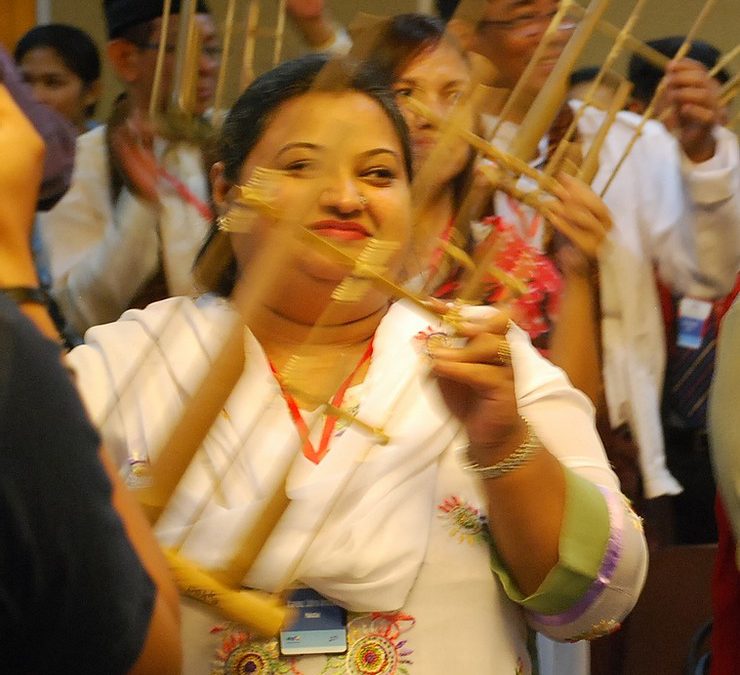Disclaimer: Website Under Maintenance: Our website is currently under maintenance. We apologize for any inconveniences.

Celebrating ASPBAE 50th birthday at the Festival of Learning (FOL) in Yogyakarta November 18-21, 2014 , I acknowledge ASPBAE in providing an opportunity to more than 130 participants representing coalitions, civil society organizations, researchers and like-minded activist from around 35 countries to share experiences, learning's and provide technical inputs to enrich the work of others in the education sector. The festival also adds to the growing knowledge on issues that require continuous research and attention. There is certainly much to celebrate as ASPBAE approaches its 50th year.
There is a continuous debate about Public Private Partnerships in education and its impact which is one of the burning issues of this region. ASPBAE gave opportunity to its member coalitions to explore the complex nature of the issue; discuss its challenges and develop strategies and solutions towards policy advocacy. ASPBAE also take forward these voices to high level policy forums for practical and needed interventions by states and the donor community.
Likewise other countries, PPP initiatives in Pakistan are generally perceived positively by the government and are being promoted under the support of bilateral and multilateral donors and being legitimized through legal frameworks. In certain situations PPP improves educational access; however this does not imply that it automatically removes inequities, issue of quality and learning outcomes. Additionally, the PPP initiatives have limitations of scaling up, if stretched beyond certain point it may develop the similar faults that are there in public system. There is also no substantive research that supports extra ordinary performance of PPP in education. The most prominent lesson is that PPP be considered as supporting initiatives towards achieving access to education but they cannot be seen as replacing the public education system. The PPP should not promote outright privatization. The challenges for PPP in terms of public policy and governance remain.
The PPP initiatives must not be seen by the government as panacea to address all educational ills. Thus government has to strengthen and develop its mainstream education system to develop a holistic view towards educational provision in light of 18th Amendment, particularly pertaining to Article 25-A, which grants the right to free and compulsory education. The civil society needs to develop a unified stance towards PPPs in education. While some consider it a pragmatic solution towards reaching EFA goals, others see PPP as quasi-privatization. We need to develop more awareness amongst civil society representatives towards various aspects of this issue. The debate has to be research informed and geared towards developing common stance of civil society organist ions towards PPPs in education.
Credit goes to ASPBAE for providing opportunities to explore and discuss this important issue but there is a need to have more large scale researches that can demonstrate the effects of PPP in education towards students' learning outcomes, teachers' working conditions and management practices and the issue of equity.
About the writer: Ms. Zehra Arshad, She is the National Coordinator at Pakistan Coalition for Education.